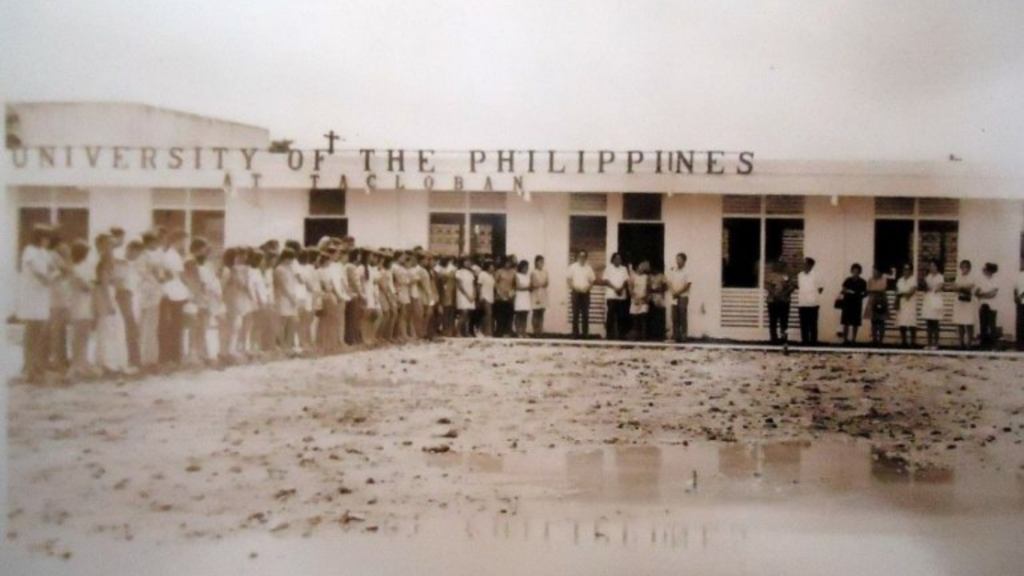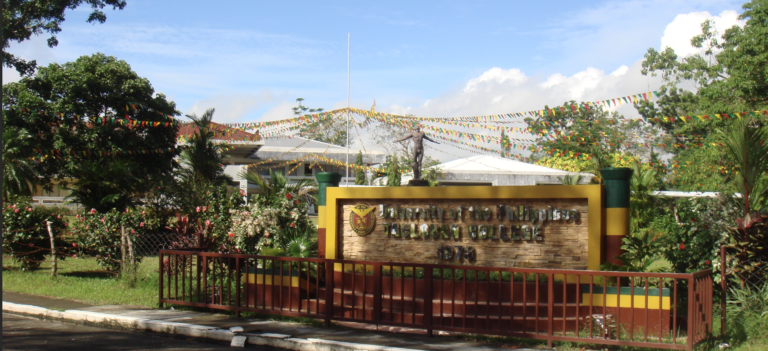About the Host
History of UP Tacloban
On May 23, 1973 and in its 833rd Meeting, the UP Board of Regents granted then UP President Salvador P. Lopez the authority to open a UP branch in Tacloban City starting in the first semester of Academic Year 1973-1974. UP Tacloban was established to pursue the following general objectives: (1) Provide quality education in the Eastern Visayas region and turn out graduates who possess essential attributes for becoming productive and responsible members of the community; (2) Undertake and encourage scientific research in public affairs that will help illuminate phenomena as well as serve practical values of resolving problems and enhancing regional development; and (3) Offer technical assistance to the community, viz., government, business, and the public at-large toward the further improvement of the quality of life in the Eastern Visayas region. The specific objectives set forth were: (1) To provide professional leadership in the region; (2) To produce humanist and development-oriented professionals; (3) To act as catalyst of change; (4) To contribute to the over-all national efforts to remedy the imbalance in the distribution of resources; and (5)
To enhance individual and group participation in the over-all national development efforts. At this time, the college was being referred to as University of the Philippines at Tacloban.

UP Tacloban at the Present

Vision
A globally recognized center of academic excellence producing humane and socially-responsive leaders serving for the development of Eastern Visayas and the country.
Mission
- To produce graduates who are leaders in the natural and social sciences, humanities, management and information technology
- To generate knowledge and innovations through disciplinal, interdisciplinary and integrative research
- To provide programs and venues of engagement for various stakeholders in response to the national and international social issues
- To lead in the protection, preservation and promotion of Filipino culture and heritage
- To serve as model university for environmental stewardship and resilience
Core Values
Service
Excellence
Integrity
Nationalism
Environmental Stewardship
Resilience
Academic Programs
Presently, the college is organized into four (4) academic divisions that offer both graduate and undergraduate degree programs.
Division of Humanities
- Bachelor of Arts in Communication Arts
Division of Management
- Bachelor of Science in Accountancy
- Bachelor of Science in Management
- Masters of Management in Public Management
- Masters of Management in Business Management
Division of Natural Sciences and Mathematics
- Bachelor of Science in Applied Mathematics
- Bachelor of Science in Biology
- Bachelor of Science in Computer Science
- Master of Science in Environmental Science
Division of Social Sciences
- Bachelor of Arts in Psychology
- Bachelor of Arts (Social Sciences) in Economics
- Bachelor of Arts (Social Sciences) in Political Science